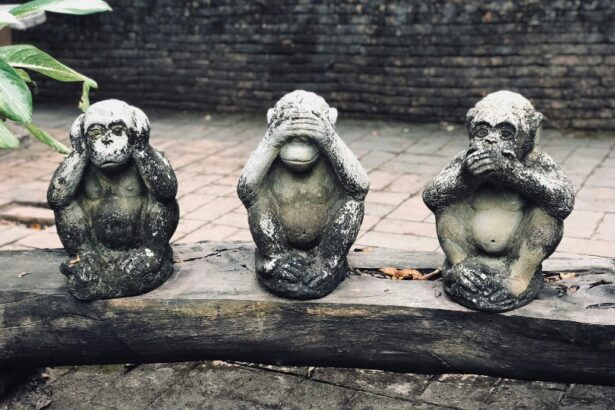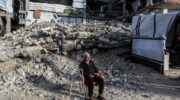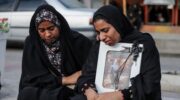The deaths of Palestinian journalists, disabled persons, and political leaders are shrugged off; truths about Palestinian innocence are withheld. No wonder Palestinians are still dying.
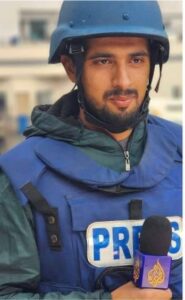
War on Gaza: Two Al Jazeera journalists were killed – and the West is silent
Israel’s slaughter of media workers should ignite outrage and condemnation across the industry. But because they were Palestinian, the world looks away
by Linah Alsaafin, reposted from Middle East Eye
“After 300 days of continuous coverage with my friend and companion Ismail al-Ghoul, I saw him without a head.”
These were the horrific words of Al Jazeera correspondent Anas al-Sharif, his eyes streaming and pain etched deeply on to his face after 10 months of covering the unspeakable crimes wrought on his people by Israel’s brutal genocide in Gaza.
His colleagues, correspondent Ghoul and camera operator Rami al-Rifi, were targeted by an Israeli drone while wearing their press gear and traveling in a car clearly marked as a news media vehicle.
Their slaughter, which Gaza’s government media office reported brought the number of Palestinian journalists killed by Israel since 7 October to 165, barely made a ripple in mainstream media.
Western journalists, many of whom profit and make their careers from covering our stories with thinly disguised opportunism and internalized racism, not only deny us the right to narrate, but they have also been nauseatingly silent over the industrial mass killing of their Palestinian counterparts.
Contrast this with the frenzy of coverage upon the Thursday release of Wall Street Journal reporter Evan Gershkovich from a Russian prison. Yet, the two beheaded Palestinian journalists scarcely registered as a blip on the western media’s radar, a damning indictment of the profession itself.
The Committee to Protect Journalists (CPJ) responded to the killing of Ghoul and Rifi with expressions of “dismay” and a feebly call for Israel to “explain why two more Al Jazeera journalists have been killed in what appears to be a direct strike”.
As prominent journalist Laila al-Arian correctly points out, the only rationale for demanding an “explanation” from Israel on the killing of journalists doing their job is that Palestinians are assumed guilty and must prove their innocence, even in death, while Israel is repeatedly given the benefit of the doubt.
Palestinian journalists are deemed untrustworthy to report on the crimes and violence meted out to them by a fanatical military power backed and aided by most western governments.
(Read the full article here.)
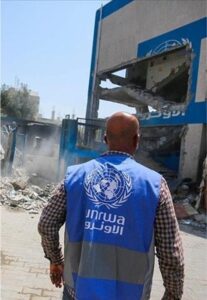
‘Blood on their hands’: Report outs WSJ for unverified claims of Hamas links to UNRWA
by Maysa Mustafa, reposted from Middle East Eye
In January, The Wall Street Journal quoted “intelligence reports” to say that 12 members of the United Nations Relief and Works Agency for Palestine Refugees in the Near East, or UNRWA, had taken part in the 7 October Hamas-led attack on southern Israel and that 10 percent of the agency’s 12,000 workers in Gaza had ties to Palestinian armed groups.
The report came only a couple of days after Israeli officials accused a dozen UNRWA workers of taking part in the attack.
The New York Times was the first to publish a detailed report on the alleged 12 UNRWA workers, but the WSJ added weight to the allegation, with its claimed findings of links between Hamas and the aid agency.
In response, the US immediately froze its funds to UNRWA, which prompted a dozen countries, including Germany and Britain, to follow suit – stalling a total of $450m.
In the Gaza Strip alone, the agency has operated over 183 schools (70 percent of which have now been hit by Israeli air strikes) and 22 health centers. The sudden halt of funding put additional stress on those who were displaced internally in Gaza, limiting what little access there already was to food, shelter, and medical care.
A recent report by Semafor said that months after the WSJ’s report, the top editor admitted the paper didn’t know – and still doesn’t know – whether its allegation was true.
According to three people familiar with the situation, the Semafor report later says that the paper’s reporters “tried and failed to corroborate the 10% claim at the center of the story” and that journalists working on Middle East reportage for the publication have also raised concerns about elements of the paper’s coverage of the war more broadly – with many feeling that it is biased towards Israel.
(Read the full article here.)
Mainstream media coverage of Israel’s assassination campaign misleads the U.S. public
by James North, reposted from Mondoweiss
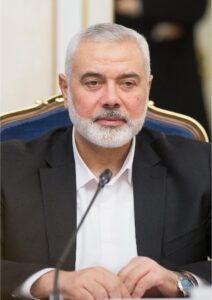
Israel’s provocative assassinations of Hamas leader Ismail Haniyeh and Hezbollah commander Fouad Shukr have raised the risk of a wider war in the Mideast, but the U.S. media would rather celebrate Israeli espionage than hold it to account.

Activists decry BBC coverage of Israel’s killing of Palestinian man with Down’s syndrome in Gaza
The BBC’s headline initially called Muhammad Bhar’s killing a ‘lonely death’ – in reality, he was attacked by a military dog and left to die by the Israeli army.
A BBC report published recently on the killing of a disabled Palestinian man by Israel has drawn intense backlash, following what activists described as a “misleading headline” and “dehumanization of Palestinians” amid the war in Gaza.
The British public broadcaster’s news website initially ran the story with the headline “The lonely death of Gaza man with Down’s syndrome” — omitting mention of the fact that 24-year-old Muhammad Bhar was left to die by the Israeli army after a combat dog was violently set on him.
In the report, written by veteran Irish journalist Fergal Keane, the attack was not mentioned until the 16th paragraph — almost halfway through the piece.
Instead, the story led with Muhammad’s disabilities and the challenges he had faced throughout his life, as told by his mother Nabila.
The report later detailed the Bhar family’s experience of displacement by war, and the distress Muhammad experienced due to the sounds of bombs, before going into detail about the Israeli army dog attack.
Following the story’s publication, activists took to social media to criticize the BBC’s reporting.
For example, disability activist Tamara Taggart said the 24-year-old with Down’s syndrome didn’t die “a lonely death”, and was in fact “brutalized”.
“Muhammad was non-verbal and needed his mum for everything, his pain is impossible to comprehend,” she said.
The BBC has since deleted the post following the criticism, and amended their headline. The new ones now reads: “Gaza man with Down’s syndrome attacked by IDF dog and left to die, mother says”.
In a new post on Wednesday, the BBC News World‘s X account added a disclaimer that the latest post “replaces an earlier version in order to update a headline that more accurately represents the article”.
Some suggested that the change wasn’t good enough, with one activist saying it failed to mention “who the dog was with, and why”.
The BBC has been criticized for alleged bias concerning Palestinian-related topics, particularly during Israel’s war in Gaza.
(Read the full article here.)
RELATED READING ON PALESTINE-ISRAEL COVERAGE IN THE MAINSTREAM MEDIA:
- NWU Report Details Retaliation Against Western Media Workers Speaking Out on Gaza War
- Why the news media’s job is to groom us
- Russia attacks hospitals in Ukraine; Israel does the same in Gaza. The US response couldn’t be more different.
- Israel’s war on Gaza is the deadliest conflict on record for journalists

